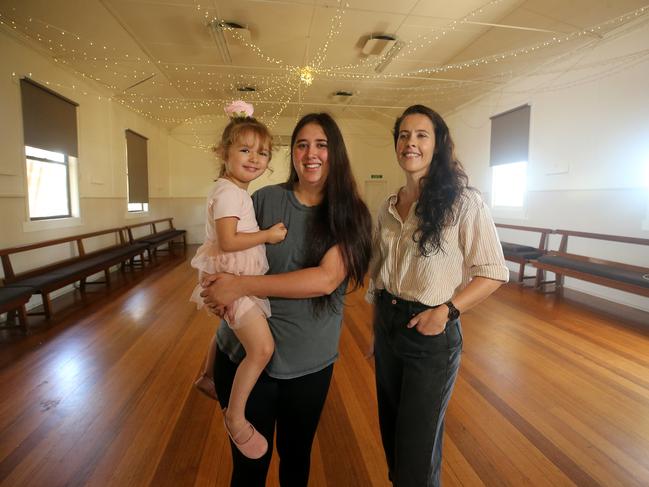Rural Victorian halls forced to fundraise for basic facilities
Victoria’s rural halls are often owned by government but rarely see money from Spring Street, so locals are banding together to facilitate their upkeep.
Rock concerts, indoor bowls and movie nights — Victoria’s country halls are being forced to find creative ways to fundraise in the post-Covid era.
Hall committees statewide were cash-strapped during the coronavirus years with red lines running through calendars due to coronavirus cancellations.
The Victorian Government technically owns 350 rural halls but the communal buildings traditionally receive little to no funding from Treasury Place in Melbourne.
“Hall committees pretty much have to raise their own funds to keep open. Then you hope you get some contribution from the local council,” Red Hill Public Hall committee member Lauren Moorfield said.

The Weekly Times asked the office of Local Government Minister Melissa Horne how much state funding had been spent on the upkeep of Victoria’s rural halls over the past five years.
The same question was put to the Department of Energy, Environment and Climate Action (DEECA). Both the Minister and DEECA declined to answer.
A DEECA spokeswoman said: “Committees of management, including in some instances groups of volunteers, are appointed to manage and maintain crown land reserves.
“Committees of management can use income generated from the reserve, such as lease or hire fees, for upkeep and maintenance. Committees may also be eligible to receive funding contributions from a variety of additional sources, including the State Government.”
“Red Hill is a great hall and there’s been all sorts of functions held there over the years,” Mrs Moorfield said.
“There’s been weddings, funeral services, birthdays, dances, concerts. But the toilets are really in need of work. Refurbishment generally but also for disability access.”
Corangamite Shire mayor Ruth Gstrein said rural hall committees were masterminds at hosting engaging events to raise much needed cash.
“There’s one hall in our shire that hosts indoor bowls. Another hosts movie nights,” Cr Gstrein said.
“Councils do provide funding to rural halls, even if they’re not council run, because they are sometimes the only facility left in that town. The primary school is often long gone, churches have been sold, the shop or the pub may have shut, but the hall remains.”





